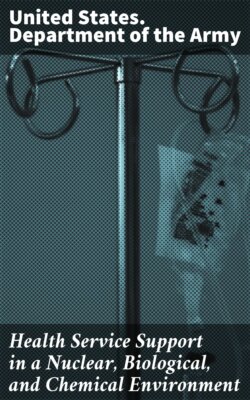Читать книгу Health Service Support in a Nuclear, Biological, and Chemical Environment - United States. Department of the Army - Страница 22
На сайте Литреса книга снята с продажи.
3–5. Actions Before a Nuclear, Biological, or Chemical Attack
Оглавлениеa. Given the disruption of transportation, communications, and operations during and following an NBC attack, it should be clear that preparation is the key to survival and effectively providing HSS. Preparing a simple and complete TSOP and HSS plan that really integrates NBC is the first step. Critical training for medical personnel before an NBC attack is how to—
Survive the attack individually and as a unit.
Operate the Level I or Level II MTF in the environment.
Effectively care for NBC patients.
b. Even minimal site preparation (nuclear hardening or CB protecting) may improve survival, greatly reduce contamination, and maintain the ability to continue to provide HSS. See the discussion below for more information on each environment. As with other military personnel, HSS personnel must keep their immunizations current; use available prophylaxis against suspect CB agents; use pretreatments for suspect chemical agents; use insect repellents, and have antidotes and essential medical supplies readily available for known or suspected NBC effects. The best defense for HSS personnel is to protect themselves, their patients, medical supplies, and equipment by applying contamination avoidance procedures. They must ensure that stored medical supplies and equipment are in protected areas or in their storage containers with covers in place. One method of having supplies and equipment protected is to keep them in their shipping containers until actually needed. When time permits and warnings are received that an NBC attack is imminent, or that a downwind hazard exists, HSS personnel should employ their CPS (see Appendix F) or seek protected areas (buildings, tents, or other ABOVE ground shelters for biological or chemical attack; culverts, ravines, basements, or other shielded areas for nuclear) for themselves and their patients.
c. Other tasks include:
Verifying NBC defense HSS inventories are complete.
Reviewing supported units NBC plans, procedures, casualty collection points, decontamination sites, and resources available to support the HSS mission.
Coordinating with the S2/G2, S3/G3 and S4/G4 of the supported unit to develop the medical courses of action; to obtain necessary materiel to support extended operations without resupply (MSR contamination or transportation support not available).
Coordinating with supported units for at least eight nonmedical personnel for patient decontamination augmentation at the Level I and II MTFs.
